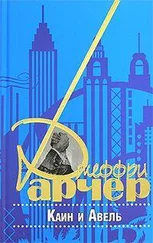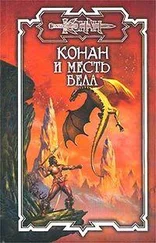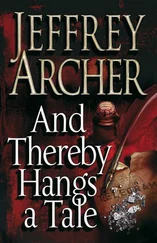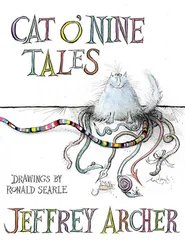“I can’t wait to meet her,” said his mother. “Why don’t you bring her to Naples for the weekend?”
“Why don’t you and Papa come to Cortoglia.”
During the next month, the number of citizens who confessed to killing Lombardi rose from thirty-three to forty-one, and when the chief called again from Naples, Antonio had to admit that the locals had defeated him, and he accepted that perhaps the time had come to close the case and head back to the real world.
Indeed, Antonio might have done so if the new mayor hadn’t phoned and asked to see him on a private matter. As the young detective walked across the square to the town hall, he assumed that the number of murderers in the town was about to rise from forty-one to forty-two, as Pellegrino was now the only person on the council who hadn’t confessed to murdering Lombardi. But when the town clerk met him at the top, no longer on crutches, and accompanied him to the council chamber, he found the mayor and all six councilors sitting in their places, clearly waiting for him.
Antonio sat down at the other end of the table and as every member of the council had already admitted to killing Lombardi, together or separately, he wasn’t sure why he’d been summoned.
“Signor Rossetti,” began the mayor. “We’ve just held a meeting of the consiglio comunale, and have unanimously agreed to offer you the post of police chief.” But you only have one policeman, Antonio wanted to remind him. “We’ve checked how much the Naples chief of police is paid, and we’ve agreed to equal it, and we also feel, with so many murderers on the loose, you will need a deputy.”
“That’s very generous, but—”
“We also accept that the time has come to build a new police station, that’s worthy of the town.”
“I agree that’s none too soon, but—”
“And I’m quite happy for you to go on living in the mayor’s house,” said Pellegrino, “because I certainly don’t need two homes.”
The third, “But...” wasn’t quite as insistent.
“And,” continued the mayor, “although we didn’t put it to a vote, if you felt able to marry a local girl, I think that would go down well.”
Several guests arrived from Naples on the morning of the wedding, but Antonio assured the mayor they would all be going home the next day.
The whole town turned out to witness the vows of eternal love sworn by Antonio Rossetti and Francesca Farinelli, including several who hadn’t been invited. When il Signor and la Signora Rossetti left the wedding celebrations to set off for Venice, Antonio suspected the festivities would still be going on when they returned in a fortnight’s time.
The newlyweds spent their honeymoon eating too much spaghetti alle vongole, and drinking too much wine, while still finding a way of not putting on too much weight.
On the last day of the honeymoon, they both confessed they were looking forward to getting back to Cortoglia. After a memorable meal at Harry’s Bar, they took a gondola back to the Cipriani, to spend their last night together in Venice.
Antonio sat up in bed and watched his wife undress, and when she slipped under the covers to join him, he took her in his arms.
“Thank you for the most wonderful fortnight,” said Francesca, “but most of all for not once mentioning Lombardi.”
Antonio smiled. “You’re about the only person I haven’t asked who you think killed him.”
“I did,” said Francesca, snuggling closer.
Antonio laughed. “And how did you kill him, my darling?”
“I poisoned him. Two drops of cyanide in his coffee just before he went to bed,” Francesca said as she turned out the bedside light.
Antonio froze.
“It’s like making love for the first time,” said the chief inspector. “A copper never forgets his first arrest.”
While all his chums at school wanted to be Han Solo or James Bond, Guy Stanford saw himself more as Sherlock Holmes. So when the careers master asked him what he wanted to do when he left school, no one was surprised when he replied, “I’m going to be a detective.”
Guy’s only problem was his father, who assumed that like him, he would train to be a barrister and later join him in chambers. Being English, they agreed on a compromise. And as with parents who are unsure their son is marrying the right girl, Guy agreed to a trial separation; if he still felt the same way about it after three years, his father would put up no objection to him joining the police force.
Guy spent the next three years at Exeter University studying the history of art — the second love of his life. He graduated with a good enough honors degree for his tutor to suggest he might consider returning to do a Ph.D. thesis on Sorolla, the Spanish impressionist. Guy thanked his tutor, took the next train back to Coventry, and after a two-week holiday, joined the local police force.
Guy didn’t take advantage of the graduate entry scheme that guaranteed accelerated promotion because, as he told his father, he preferred to win his spurs on the battlefield. His four years on the beat before he became a detective turned out to be full of challenges. For example... no. This is not a story about the recently promoted Chief Superintendent Guy Stanford, but a tale about PC Stanford’s first arrest.
It had been a particularly grueling week for Guy, which had ended on Saturday afternoon with his having to accompany the visiting Cardiff City football supporters back to the station, after they’d lost to Coventry, 3–0.
Once the last train had departed, Guy decided not to join his mates at the pub that evening, but to curl up in bed with a good book. But he was so exhausted that he only managed a couple of chapters of Duveen by S. N. Behrman before he fell into a deep sleep.
Twenty minutes later his dreams were interrupted by an insistent ringing. But it was still some time before he managed to pick up the phone.
“Stanford,” said a voice that wasn’t used to being disobeyed. “Report to the station immediately. And immediately means you’re already late.”
“Yes, sarge,” said Guy, suddenly wide awake. He leaped out of bed, took a two-minute shower, didn’t shave, and threw on his uniform. He ran downstairs and out onto the street, jumped on his bike and didn’t stop pedaling until he reached the station.
Once he’d dumped the bike, he joined several of his colleagues who were charging up the steps into the nick.
“Downstairs, lads,” said the desk sergeant. An order Guy obeyed without stopping.
When he entered the large situations room in the basement, he joined thirty or forty of his colleagues who had clearly all been drafted in at short notice. Although none of them had any idea what they were doing there, they didn’t have to wait long to find out.
When Chief Superintendent Dexter (crime) walked in, Guy realized it had to be serious, and when the chief constable followed only a pace behind, the whole room fell silent.
“OK, listen up, lads,” said the super, as he placed his hands on his hips, “because I don’t have time to repeat myself. A small inner group of senior police officers have been working for several weeks on a particularly sensitive investigation. However, I was unwilling to give the go-ahead until we were confident every piece of the jigsaw was in place. An hour ago, we received information from a reliable source that we wouldn’t get a better opportunity than tonight to bang up Bernie Manners, along with a few other well-known villains.”
Several of the officers began to cheer and applaud. Although Guy hadn’t come in contact with Manners, he knew only too well who he was. His photograph had become a dartboard in the crime room long before Guy had joined the force. He knew Manners was the local drug baron, who controlled a territory that stretched from Watford to Birmingham, and anyone who strayed onto his patch went missing. But far worse were the number of young lives he had ruined with the distribution of heroin and crack cocaine by his army of dealers. Thanks to a cadre of expensive lawyers, Manners had never been convicted or seen the inside of a prison cell. Even when they’d found a shotgun in the boot of his Mercedes, Manners was able to prove he was on the way to a pheasant shoot, and that the gun was registered. The jury didn’t seem to understand the difference between a shotgun and a rifle.
Читать дальше






![Джеффри Арчер - The Short, the Long and the Tall [С иллюстрациями]](/books/388600/dzheffri-archer-the-short-the-long-and-the-tall-s-thumb.webp)





